Review| The Conjuring 2
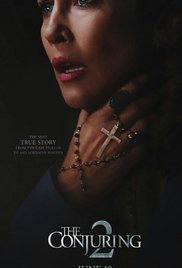 The Conjuring 2 opened to a massively successful first weekend: 75% on RottenTomatoes and $40 million dollars, the biggest horror film opening since the first installment in 2013 (and the biggest June horror film opening ever). The film is quite good – not as tight as the original, but even scarier.
The Conjuring 2 opened to a massively successful first weekend: 75% on RottenTomatoes and $40 million dollars, the biggest horror film opening since the first installment in 2013 (and the biggest June horror film opening ever). The film is quite good – not as tight as the original, but even scarier.
The James Wan-directed franchise is “Based on the True Story” of Ed and Lorraine Warren, New England’s original ghost hunters. Ed is a self-trained, self-proclaimed “demonologist”, while Lorraine is an alleged clairvoyant. The films dramatize some of the Warrens’ more famous cases (though I’m hoping the franchise is successful enough to warrant The Conjuring VII: Werewolf Demon).
Also of note is that both Conjuring films are penned by the Hayes brothers, who are unapologetic Evangelical Christians (which won’t surprise anyone who’s seen either film). Again, both films are well-written and very scary (probably – more on that in a moment). If you’re wondering whether you should see them, I say Yes, as long as sleep is a negotiable for you.
Rather than pick the film apart, let’s talk about possession films. (If you want that, check out my horror podcast Don’t Split Up! for a full, indepth review.)
If you’re going to tell a story about demonic possession, especially one based on well-documented events like the Enfield Haunting, you have three options.
Plenty of people don’t believe in the demonic, and plenty more folks are very skeptical that events like what happened at Enfield are the work of anything supernatural. Especially since Janet Hodgson has since admitted she and her older sister faked some of the incidents. Obviously there’s a particular kind of terror that arises from precocious kids carrying on an extended, elaborate prank that’s virtually undetectable to adults. I’m sure we all remember The Good Son. (No? You should watch it then.)
Option 2: It’s all real!
This is the decision the Hayes brothers made (and what most filmmakers go with). Demons are real, they’re evil, and you need some kind of priest (probably). If you believe in the supernatural, this is probably going to scare you. If you don’t, you’re going to think it’s all a bit silly.
The biggest problem with this approach specifically for people of faith is that the Bible doesn’t contain anything remotely resembling a coherent demonology. Most of what exists in popular culture (even, yes, popular church culture) comes from Church tradition (at best), experience or fiction (like Dante’s Inferno). So the films might function as entertainment (if, like me, you’re into that sort of thing). But as reflections on faith, the most we can honestly say is about what Ed Warren says at the end of the first Conjuring film (by way of a quote):
“Diabolical forces are formidable. These forces are eternal, and they exist today. The fair tale is true. The devil exists. God exists. And for us, as people, our very destiny hinges upon which one we elect to follow.” — Ed Warren
The great problem with this sort of horror (of which the first Conjuring is much more guilty than the second) is that Satan becomes more powerful than God. God is merely an instrument to ward off Satan. Not only is this a woefully inadequate picture of faith for most persons of faith, it’s not actually a good defense against the powers of darkness. Crosses aren’t magical fetish items that have inherent power over demons (at least that’s my take – again, the rulebook is rather vague).
Option 3: No one knows
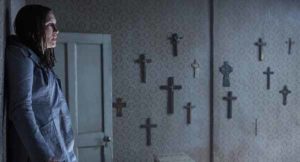 It’s hard to find a film in this final category, which is odd because it’s the world we all live in. The case of the Enfield Haunting is a perfect case study: the girls were caught faking… sometimes. But plenty of other events (like the chair the police officer saw move across the floor) were witnessed by competent, discerning professionals and remain unexplained. Some choose to believe it was all faked (#1), while others choose to believe it was demonic (#2).
It’s hard to find a film in this final category, which is odd because it’s the world we all live in. The case of the Enfield Haunting is a perfect case study: the girls were caught faking… sometimes. But plenty of other events (like the chair the police officer saw move across the floor) were witnessed by competent, discerning professionals and remain unexplained. Some choose to believe it was all faked (#1), while others choose to believe it was demonic (#2).
But the reality is we don’t know, and that ambiguity is terrifying. Maybe that’s why our horror films pick a side for us – to shield us from the real terror of the unknown.
Even films that hint at ambiguity mostly choose sides in the end – like Rosemary’s Baby or the recent The Last Exorcism. While films like The Conjuring franchise are a lot of fun, we might ultimately find more ambiguous films more helpful to facilitate helpful conversations about spirituality. The reality is that the vast majority of people are much closer to this final option than they are #1 or #2.
Do you think a horror film that embraces the ambiguity of the supernatural world can be as scary? Is that something you’re interested in watching?


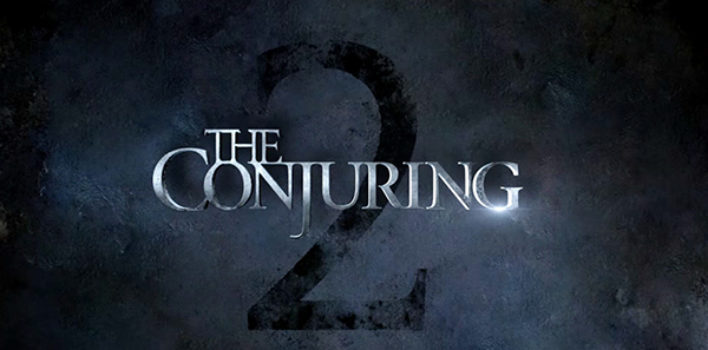
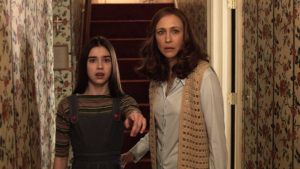

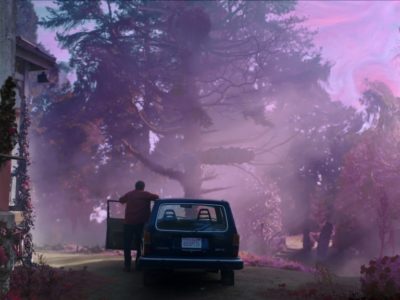



Pingback: Damn Shame with Curtis Tucker | StoryMen